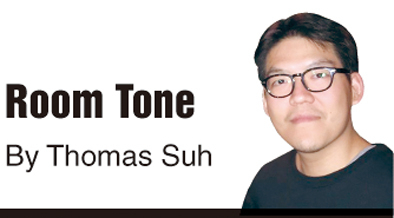
It’s a balmy afternoon sometime in 2010, and you and 40 co-workers are gathered at a scenic park on the eastern outskirts of Seoul getting ready to shoot Scene No. 45 of episode 12 of a highly-rated television drama. Despite the tranquil appearance, there is a small and pressing problem: Episode 12 is scheduled to air later tonight.
The director of photography (DP) is desperately staring up at the sky; if they don’t finish shooting in the next 45 minutes, they will lose the sun to the horizon. The cast and crew have been running on three hours of sleep for the past 72 hours and have long past the point of exhaustion.
Suddenly, an assistant director runs onto the set, holding onto what everyone has been waiting for -- the script pages for Scene 45. The whole team jumps into action as if they had stepped on a hornet's nest. The script pages are rushed to the actors on standby in their Chevrolet Starcraft vans while the director huddles with the crew to block out the scene.
In mere minutes, the actors walk onto the set, incredibly having memorized the three full pages of fresh dialogue. The director says there is no time for rehearsals -- cameras begin to roll. To our amazement, Scene 45 plays out as if it had been rehearsed weeks in advance. The director has a minor note and everyone resets for a second take. “Cut! We got it,” yells the director as the DP exhales in relief.
A camera assistant removes the tape from the camera and hands it over to an awaiting motorcycle courier whose sole mission is to navigate rush hour traffic and deliver the tape to the editing studio in western Seoul as quickly as humanly possible.
Despite several close calls, the courier delivers the tape to an editorial assistant waiting in the lobby of the MBC building in Yeouido, who then bounds up the staircase, three at a time, towards the editorial bay on the sixth floor. The editor arranges the scene just in time for the master tape to be delivered to the broadcast room.
At 9:55 p.m., Episode 12 airs to a captive audience across the country. The director, actors and crew can now relax, crisis averted. But the relief is short-lived … there are still another four episodes left to shoot!
The aforementioned scenario, while a fictional tale of my dramatic imagination, was a common occurrence for those who worked in the Korean drama industry during the early to mid-2010s. For many years, this was the daily reality of television production -- a chaotic yet remarkably potent system of filming till the very last possible moment.
At its best, this approach creates a vibrant energy that enhances the show. However, as with any high-stakes, high-pressure scenario, it is difficult to sustain over time and doomed to fail. And for those ill-fated productions whom fortune frowns upon, there have been numerous instances of quality stumbles, on-set injuries and even the most dreaded outcome -- a sudden cut to black during a live broadcast.
Today, drama projects are planned, written and shot months, even years, in advance. Talent and crew are able to enjoy nights and weekends away from work, one step closer to a sustainable career. New safety checks and protocols now contribute to a much safer working environment. All in all, a much-needed reform, easing the relentless high-wire act that was once a necessity just a decade ago.
For those who lived that reality, these memories now feel like war stories shared by veterans returning from the battlefield. The echoes of those days serve as a stark reminder of a time when survival meant pushing far beyond reasonable limits. Every sleepless night, every last-minute crisis and challenge etched into their minds. Yet, these recollections are now safely ensconced in the memories of the distant past, serving as a testament to their resilience but also as a chapter that they are relieved to have closed.
--
Thomas Suh is the founder and managing director of Systeme D Entertainment, a film, media and entertainment company that specializes in content acquisition, management and production for film and television. “Room Tone,” the title of Suh’s column series, refers to the ambient sound of a space in which filming takes place. Thomas Suh can be reached at tommysuh@me.com -- Ed.






![[Today’s K-pop] Blackpink’s Jennie, Lisa invited to Coachella as solo acts](http://res.heraldm.com/phpwas/restmb_idxmake.php?idx=644&simg=/content/image/2024/11/21/20241121050099_0.jpg)
